Find comfort, understanding, and gentle guidance through the pages of these compassionate reads.
When Words Become Companions in Grief
Grief is not a problem to fix – it’s a journey we learn to walk, one breath and one memory at a time.
Whether you’ve lost a loved one, a friend, or a part of your life that once defined you, books can offer something quietly powerful: understanding.
In the solitude of bereavement, stories, reflections, and compassionate words help us feel seen. Below are carefully chosen bereavement books that can help you process loss, rediscover hope, and navigate your healing path — at your own pace.
How to Choose a Bereavement Book That Speaks to You
Each person’s grief is unique. Some books soothe the heart; others guide reflection or spiritual meaning.
When choosing, consider:
- What kind of loss are you facing? (recent, long-term, sudden, anticipatory)
- What voice comforts you most — gentle reflection, practical psychology, or faith-based insight?
- How much emotional energy do you have for reading right now?
- There’s no wrong choice — only what best supports you today.
Some of the links below are affiliate links. If you buy through them, we may earn a small commission at no extra cost to you. This helps keep whytoread.com running. Thank you for supporting thoughtful reading.
1. It’s OK That You’re Not OK by Megan Devine
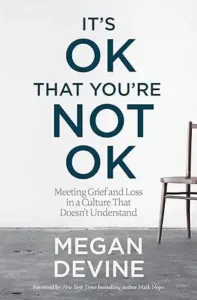
Tone: Honest, validating, compassionate realism
Megan Devine, a therapist who lost her partner suddenly, writes with disarming honesty: grief isn’t something you “get over.” It’s something you learn to live alongside.
She dismantles toxic positivity and invites you to honor your pain as sacred.
“Some things cannot be fixed. They can only be carried.”
Why it matters: This book offers both permission and relief – it normalizes what grief truly feels like.
2. The Year of Magical Thinking by Joan Didion
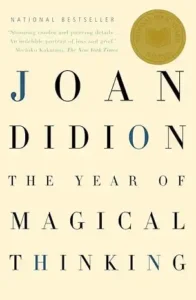
Tone: Elegant, introspective, deeply human
When Didion lost her husband, she turned her shock and sorrow into luminous prose. The book examines the fragile line between memory and reality in early grief.
Why it matters: For many, this memoir mirrors the surreal disconnection of bereavement — and reminds us that grief, though isolating, is universally human.
3. Healing After Loss by Martha Whitmore Hickman
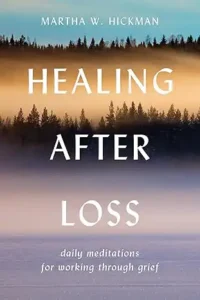
Tone: Gentle, spiritual, bite-sized reflections
Structured as a year’s worth of one-page readings, this book offers comforting thoughts, quotes, and gentle meditations. Ideal for bedtime reflection or morning grounding.
Why it matters: Perfect for those who want consistent, manageable support through each day’s emotional rhythm.
4. Bearing the Unbearable by Joanne Cacciatore
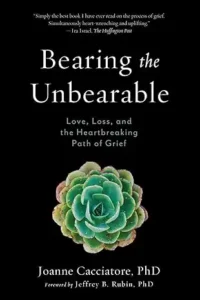
Tone: Poetic, spiritual, mindfulness-based
Dr. Cacciatore blends grief counseling, Buddhist practice, and lived experience. Her approach honors both the sacredness and the suffering of loss.
Why it matters: A deeply compassionate invitation to sit with your sorrow — and transform it into love that endures.
5. Option B: Facing Adversity, Building Resilience, and Finding Joy — Sheryl Sandberg & Adam Grant
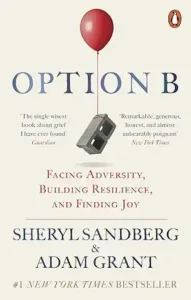
Tone: Encouraging, psychological, practical
After her husband’s sudden death, Sandberg partnered with psychologist Adam Grant to explore how humans recover and rebuild.
It blends research with real stories of resilience.
Why it matters: Offers a path forward when you’re ready to rediscover strength and connection.
6. A Grief Observed by C.S. Lewis
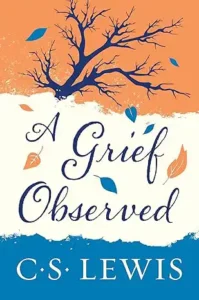
Tone: Reflective, theological, searching
Written after the death of his wife, this classic captures the conflict between belief and pain. Lewis wrestles with doubt, faith, and the meaning of suffering.
Why it matters: A timeless reminder that questioning and faith can coexist within love and loss.
7. Grief Day by Day by Jan Warner
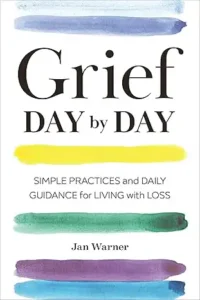
Tone: Hopeful, guided, practical exercises
With daily and weekly prompts, Warner helps readers process emotions, rebuild routines, and honor memories.
“Grief doesn’t end, but it can change shape.”
Why it matters: Offers a compassionate roadmap for those continuing to heal months or years after loss.
Check out other books to read when you are feeling down – https://whytoread.com/best-books-to-read-when-feeling-down/
How to Use These Books in Your Healing Journey
- Start small. One paragraph or page is enough when emotions run high.
- Pair reading with journaling. Write one takeaway, quote, or feeling after each session.
- Share with a friend or counselor. Grief conversations heal best when shared safely.
- Return often. Each reread reveals something new as healing deepens.
Additional Bereavement Resources
Grief can feel overwhelming, but you don’t have to face it alone. If you’re fortunate enough to have a local crisis helpline or bereavement service, reaching out can bring comfort and connection when you need it most.
Many communities offer 24/7 helplines, grief centers, or peer-support groups led by people who understand loss. Even one conversation can help you feel supported and less alone.
If you’re unsure where to begin, search for “grief support + your location” or contact a national helpline — caring listeners are available anytime.
Remember: reaching out is an act of strength and self-care. You deserve support, compassion, and space to heal in your own time.
Closing Thoughts
Grief changes us — but it also reveals depths of love we might never have known.
If you’re reading this, you’re already taking a brave step toward understanding your loss.
May these books bring you gentle comfort, one page at a time.
“We read to know we’re not alone.” – C.S. Lewis

